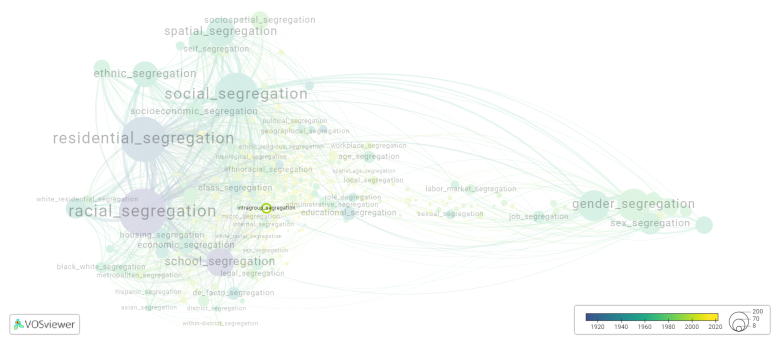Intragroup segregation: Difference between revisions
(Creating page) |
(Creating page) |
||
| Line 6: | Line 6: | ||
Intra-group segregation refers to the separation or division of individuals within a particular group based on certain characteristics such as race, religion, gender, or social status. This can occur within a variety of social settings, such as schools, workplaces, or communities, and can result in discrimination, exclusion, and unequal opportunities for certain members of the group. Intra-group segregation can contribute to social inequality and hinder efforts to promote diversity, inclusion, and unity among group members. | Intra-group segregation refers to the separation or division of individuals within a particular group based on certain characteristics such as race, religion, gender, or social status. This can occur within a variety of social settings, such as schools, workplaces, or communities, and can result in discrimination, exclusion, and unequal opportunities for certain members of the group. Intra-group segregation can contribute to social inequality and hinder efforts to promote diversity, inclusion, and unity among group members. | ||
==See also== | ==See also== | ||
==Related segregation forms== | |||
Intragroup segregation is frequently discussed in the literature with the following segregation forms: | |||
[[residential segregation]], [[white residential segregation]], [[latino white segregation]], [[intergroup segregation]] | |||
[[File:intragroup_segregation.png|780x780px]] | |||
For the complete network of associated segregation forms, see: | |||
year of publication https://tinyurl.com/2235lkhw | |||
Louvain clusters https://tinyurl.com/2d8wg5n3 | |||
betweenness centrality https://tinyurl.com/223udk5r | |||
disciplines where segregation forms first appeared https://tinyurl.com/244d8unz | |||
==References== | ==References== | ||
==Notes== | ==Notes== | ||
Revision as of 14:36, 27 September 2024
Date and country of first publication[1]
2007
United States
Definition
Intra-group segregation refers to the separation or division of individuals within a particular group based on certain characteristics such as race, religion, gender, or social status. This can occur within a variety of social settings, such as schools, workplaces, or communities, and can result in discrimination, exclusion, and unequal opportunities for certain members of the group. Intra-group segregation can contribute to social inequality and hinder efforts to promote diversity, inclusion, and unity among group members.
See also
Related segregation forms
Intragroup segregation is frequently discussed in the literature with the following segregation forms:
residential segregation, white residential segregation, latino white segregation, intergroup segregation

For the complete network of associated segregation forms, see:
year of publication https://tinyurl.com/2235lkhw
Louvain clusters https://tinyurl.com/2d8wg5n3
betweenness centrality https://tinyurl.com/223udk5r
disciplines where segregation forms first appeared https://tinyurl.com/244d8unz
References
Notes
- ↑ Date and country of first publication as informed by the Scopus database (December 2023).
At its current state, this definition has been generated by a Large Language Model (LLM) so far without review by an independent researcher or a member of the curating team of segregation experts that keep the Segregation Wiki online. While we strive for accuracy, we cannot guarantee its reliability, completeness and timeliness. Please use this content with caution and verify information as needed. Also, feel free to improve on the definition as you see fit, including the use of references and other informational resources. We value your input in enhancing the quality and accuracy of the definitions of segregation forms collectively offered in the Segregation Wiki ©.
Intragroup segregation appears in the following literature
Wahl A.-M.G., Breckenridge R.S., Gunkel S.E. (2007). Latinos, residential segregation and spatial assimilation in micropolitan areas: Exploring the American dilemma on a new frontier. Social Science Research, 36(3), 995-1020. https://doi.org/10.1016/j.ssresearch.2006.07.004
